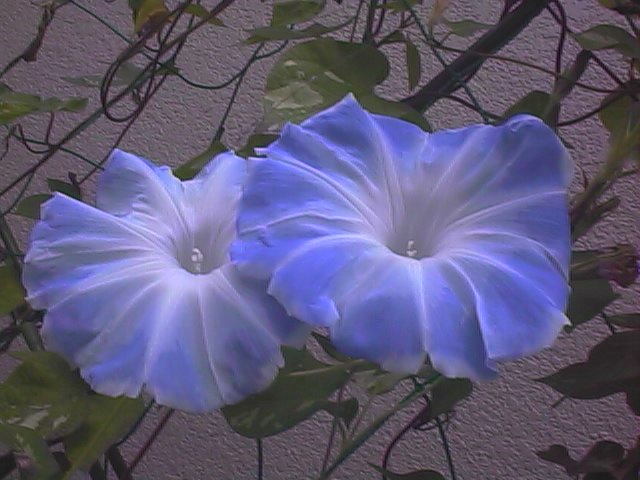|
July |
July is one of the most complicated seasons for Japanese people because many pleasant and unpleasant things come together. During this month, Japanese are looking forward to summer vacation which is followed by many events such as summer festivals, taking trips with family or friends, returning home and visiting relatives. On the other hand, most of students have to take final examination, which worry them. The rainy season from June comes to an end. The summer sets in and many typhoons start to pass through Japan in July.
July has another name, “Fumituki” in Japanese. “Fumi” stands for letter or writing and “tuki” means month. It is said that this name came from the old custom to write poetry in “Tanabata” (which will be explained below.) Also, the name might be originated from the breeze beginning to blow this month. That’s because the pronunciation of “Fumi” is same as that of breeze in old Japanese expression. Those names are based on the lunar calendar, which Japanese once used.
|
|
"Tanabata" (Stars-celeblation festival) July seventh is generally called "Tanabata" in Japan. It is a Japanese event to celebrate the two stars named "Hikoboshi (Altair)" and "Orihimeboshi (Vega)." The two stars are located on the opposite side of the milky way from each other. When seventh of July approaches, Japanese people prepare a small Chinese bamboo tree and put it in their yard. We decorate it with colorful paper cut into various shapes such as stars, nets, strings and cranes. In Japan, a Chinese bamboo is regarded as a holy plant and is used for some sacred ceremonies held at Japanese shrines. The reason why it is considered to be holy is it kills germs, that protect things from evils. Also, its characteristic of growing rapidly is seen as liveliness. |
|
People put several pieces of paper on
which they write their wishes. Those papers are called "goshiki no
tanzaku (the five colored papers)." It is said that they originally
donated the five colored clothes "Orihime," hoping that they may
become good at weaving and sewing. |
|
|
|
"Morning-glories" We call morning-glories "Asagao" in Japan. "Asa" means morning and "gao" means face. When they bloom early in the summer morning, they seem to show their face. So Japanese named them “Asagao”. Originally, morning-glories were imported from China as medicine more than 1000 years ago. Then Japanese have improved on the flower to enjoy its beautiful appearance. |
|
"Ochugen" (The Japanese custom of giving gifts) "Ochugen" is the gift which you give to your relatives, acquaintances, bosses and colleagues with whom you have a close connection. You give some inexpensive and useful items to them such as cooking oil, coupons, detergent. The reason we give these gift is to show thanks for our good relationship. Originally, the word "Ochugen" meant a certain date, that is, 15 of July from an old Chinese myth. Long ago, there was a god who was born on July 15. Since he loved people and forgave their sins, people celebrated the god by setting a fire all day long and donating some gifts. Later, this custom was transported to Japan and it created two customs in Japan. One is to gather family and donate some gift the ancient spirits and present something parents. The other the similar custom is to donate food for ancient spirits and to pray they may sleep in peace. These two customs have been combined to create modern "Ochugen". |
|
|
|
"Yama-biraki" "Yama-biraki" is a ceremony to open up the mountains to people and to pray that hikers climb them safely during summer. In Japan, some mountains were considered to be holy places, and in the past only monks were permitted to climb them during year. Such mountains are called "Reizan" which means a holy mountain. Usually, the opening ceremony is held at designated shrines at the bottom of the mountains at the beginning of summer. After the event, hikers are allowed to climb those mountains shown in the picture on the left. The mountain opening period comes to an end by the closing ceremony at the end of summer. The dates of those events differ according to the mountains' location. For instance, "Mt Fuji" which is the highest mountain in Japan is opened to the public on July 1. The closure of "Mt Fuji" is conducted on August 27. Hearing the news of “Yama-biraki,” Japanese people feel the beginning of summer. |
|
E-mail address: callstudy@hotmail.com
|



